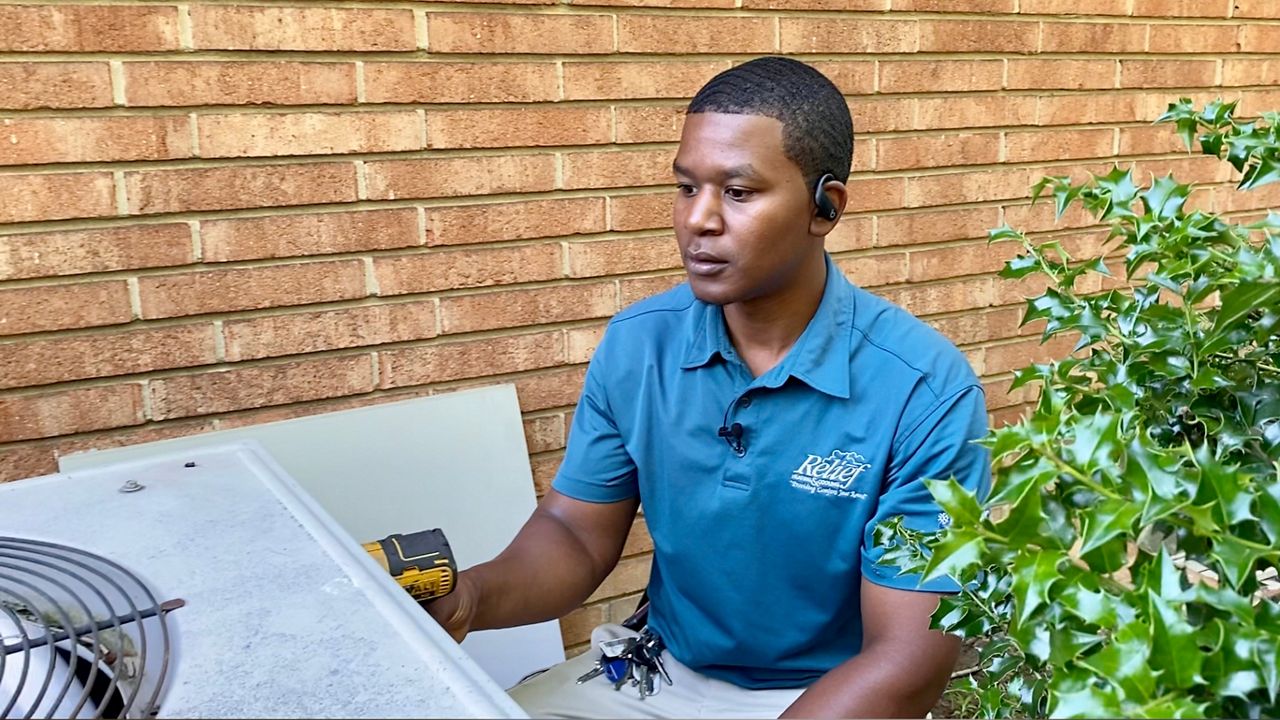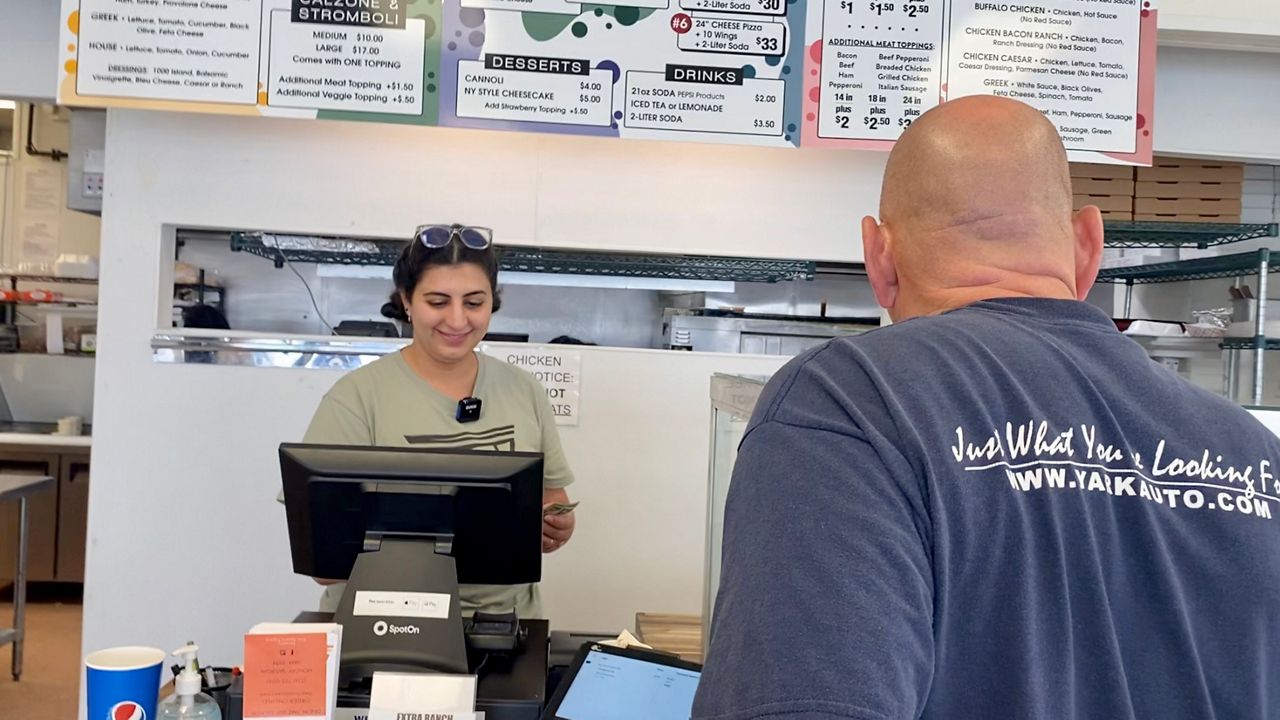WINSTON-SALEM, N.C. — North Carolina fire officials discussed nuclear protocols and what might happen if the state was threatened, which it currently is not.
What You Need to Know:
- There is no current nuclear threat, as Ukraine is about 5,000 miles from North Carolina
- The protocol really varies from case to case
- There is a government website, ready.gov, that can help you stay prepared for anything
It takes a few people just to put it on, but it’s hard to miss Captain Robbie Shrewsbury in a hazmat suit.
“We definitely put it on when there’s a splash and/or vapor risk,” he said. “Some of the chemicals we deal with could be hazardous to the skin.”
Shrewsbury started working for the Forsyth County Fire Department as a volunteer when he was 15.
“My cousin, who I looked up to for many years, was a volunteer at Walnut Cove,” he said. “He took me on a call one time when I was about 12, and I kind of got very interested in it at that point.”
Decades later, he heads several units within the Winston-Salem Fire Department, including hazardous materials. They use all sorts of instruments, like one they call the “Red Wave” to identify a bunch of different substances.
“It’s very good at identifying unknowns,” Shrewsbury said. “With this, we have the capability, we could do solid, liquid or gas.”
There’s no current threat to our state when it comes to nuclear war. But Ukrainian President Volodymyr Zelensky put the world on alert when he said Vladimir Putin could use nuclear weapons against Ukraine.
“There is a possibility of them using these weapons,” Zelensky said to CNN’s Jake Tapper. “Nobody expected there to be a full-scale invasion of Ukraine from the Russian Federation.”
Of course, North Carolina is about 5,000 miles from Ukraine, but what would it look like if there was a nuclear problem here?
“We really wouldn’t focus too much on the risk of any type of nuclear hazard,” Forysth County Emergency Management Director August Vernon said. “It would be more about, again, what I call 'an all-hazard risk.' How are you prepared for any type of emergency, and this could be one of those.”
Vernon says the protocol for something nuclear essentially varies from case to case.
“It’s hard to really say. Is it here or is it 1,000 miles away on the other side of the United States?” Vernon said. “Each one of those scenarios would impact us differently. Obviously, if it was here, it would be catastrophic and terrible.”
The government has a website, ready.gov, to help people prepare for just about anything. The best advice Vernon gives for anything is to be prepared.
“Low-risk, high-impact. Our concern, we’re getting ready to go in the summer season, and we did a news briefing last week about being ready for hurricanes and floods and thunderstorms and lightning,” he said. “Those kill people every single year.”
No matter what, it’s good to be prepared. If you do need help, experts like Shrewsbury will be ready to take care of you.
“I found where I want to be,” he said. “This is home.”







)


